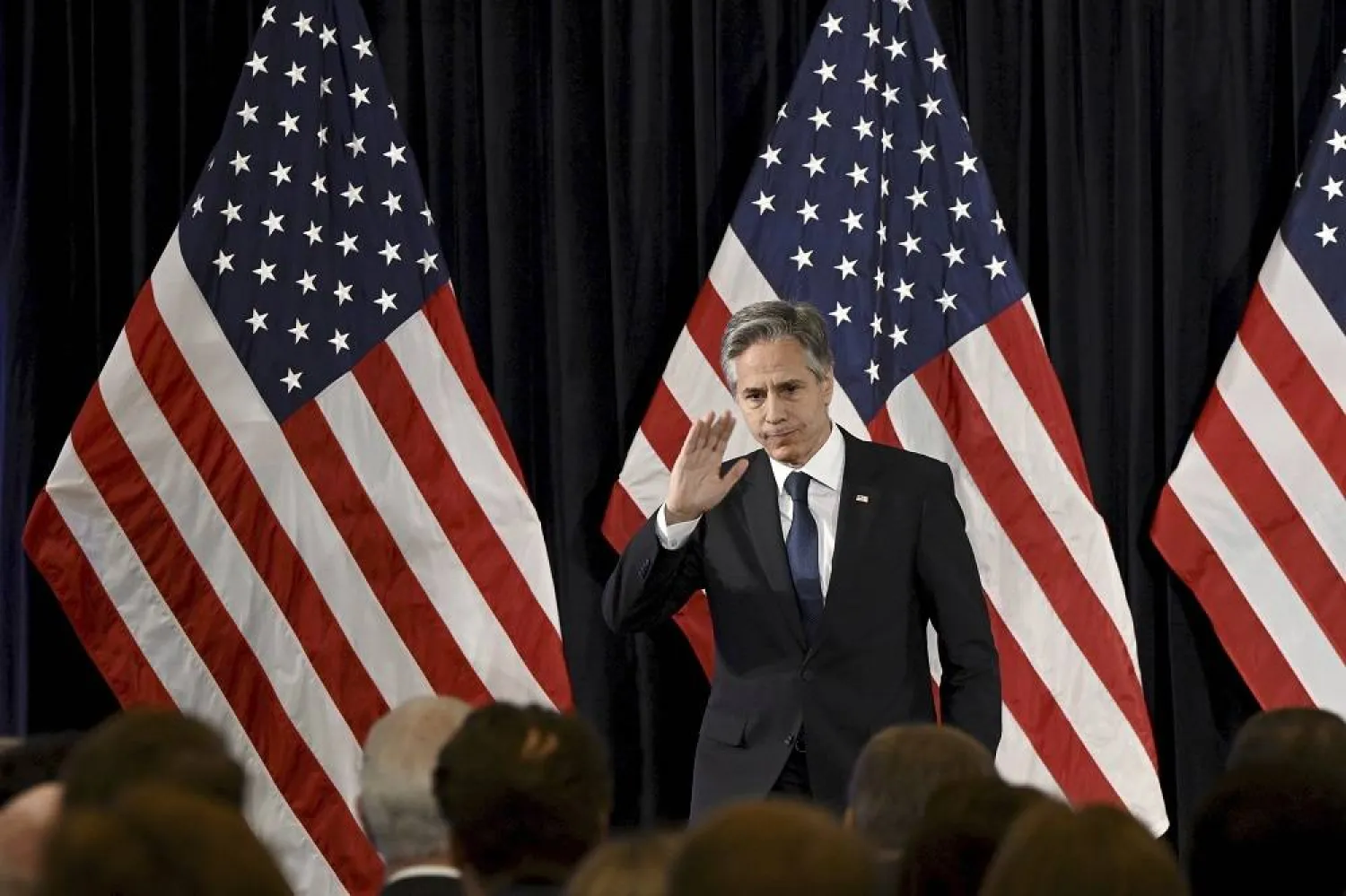US Secretary of State Antony Blinken will pay a visit to Saudi Arabia from June 6 to 8.
He is scheduled to co-host a June 8 meeting with Saudi Foreign Minister Prince Faisal bin Farhan bin Abdullah on combating the ISIS militant group, said a US State Department Statement.
The trip will also include a June 7 US-Gulf Cooperation Council ministerial meeting on Middle East security and integration, it added.
Deputy Assistant Secretary for Arabian Peninsula Affairs Daniel Benaim told a press briefing that the US cooperates with the GCC on a range of issues to promote regional security, stability, de-escalation, and integration in the Gulf, Middle East, and beyond.
Blinken will also consult with Saudi leaders on a range of bilateral, regional, and global priorities.
“Blinken and others in our government have been engaged intensively of late with Saudi counterparts on Sudan, among other issues, because of Saudi Arabia’s important role in the diplomacy there and in humanitarian and evacuation efforts,” added Benaim.
“More broadly, Saudi Arabia has been our strategic partner for eight decades across US administrations. We continue to consult and collaborate on a wide range of issues. We have a great deal of work to do together. That includes ending the war in Yemen, where US and Saudi support for UN-led peace efforts have helped facilitate now 14 months of dramatically reduced violence, increased humanitarian access, and the quietest period since the conflict began more than eight years ago,” he remarked.
“That includes Saudi Arabia’s support for Ukraine, which has included $410 million in critical assistance and high-profile bilateral visits from leaders of both countries. We also have newer areas of cooperation like tech and telecom, including Open RAN, our cutting-edge collaboration on 5G/6G technologies, green energy cooperation, and space,” he went on to say.
“The presence of a female Saudi astronaut – the first Muslim woman to visit space – launched in partnership with the United States, speaks to our shared ambition to broaden our work together into new areas, all of which, if successful, can deliver benefits that extend beyond our two countries,” stressed Benaim.
“We’re redoubling our emphasis on regional integration and structure, as National Security Advisor Sullivan recently explained, and whether through the Negev process or the GCC Interconnector linking Iraq with the Gulf and the rest of the region, or otherwise. We’re looking for ways to capitalize on the current moment, which is full of dialogue, newfound ties, mended ties, to encourage our neighbors’ efforts to connect to each other and the region’s efforts to connect to the wider world in important new ways,” he continued.
“We’re working to deepen business partnerships that benefit hundreds of thousands of American workers. The Boeing deal with Saudi Arabia announced in March, valued at nearly $37 billion, will support over 140,000 jobs across the United States,” he said.
“Our defense cooperation remains strong; our security relationship with Saudi Arabia remains a bedrock of our approach to regional defense and security and protecting the more than 80,000 US citizens living and working in the Kingdom.”
“I would also note that hundreds of thousands of Saudis have studied in – at US universities over the past few decades. These educational and people-to-people ties are among the most important investments that we can make together in the future, and we will look to build on them.”









